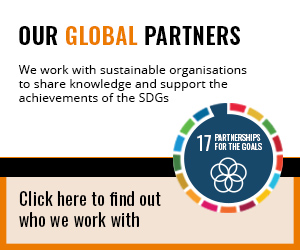Monika Liikamaa, CEO and Co-Founder, Enfuce
Banks have a crucial role in advocating CO2-conscious lifestyles among consumers. CO2 emissions are derived from consumption, consumption is enabled by spending money and money is handled by banks. Because the drastic impacts of climate change have already been seen, banks need to take responsibility and act to fight it.
Studies have estimated that 70 per cent of CO2 emissions are driven by consumer behaviour. Banks and financial institutions can be key enablers in fighting climate change because they see and process all our transactions. This provides them with a wealth of information about consumption patterns and preferences.
If banks can calculate customers’ carbon emissions based on transaction data, they can show them their individual carbon footprint. However, it is not enough to tell consumers how their lifestyle choices affect climate change – they must also advise them on how they can reduce their emissions, incorporating sustainability into personal finance management.
To do this, banks can build a range of products. For example, they can offer their customers dynamic credit interest depending on what their sustainability score is. Another way for banks to incorporate sustainability into their services is by offering carbon-cutting loyalty schemes that incentivise consumers to buy environmentally friendly products and services.
Incorporating sustainability into banking services
Banks can help consumers change their lives towards a more sustainable world by giving financial advice that is good for the bank, the consumer and the environment – and make a real impact.
For example, banks can advise homeowners to choose geothermal heating instead of district heating. This would not only decrease the emissions of the house but also increase the property’s value and decrease the bank’s collateral risk.
That being said, every time banks meet their customers, they have the opportunity to help them live a more sustainable life. This does not mean that banks would be helping their customers to spend less but enabling them to consume more responsibly and sustainably.
Enfuce was born to enable change within the payment industry. Helping fintechs and merchants, on top of banks and financial institutions, to issue payment methods better and faster in a globally scalable process is at the core of Enfuce. And when companies can issue payment methods, they are helping people to spend.
By wanting to build a company that has a long-term positive impact, sustainability has been at the core of Enfuce since day one. This made the Enfuce founders think about what the company can offer its customers to help in the fight against climate change and make an impact. Since Enfuce is allowed to store and process sensitive data, the company decided to turn it into impactful insights for the greater good of the planet, and that is how My Carbon Action was born.
The time to talk is over; the time to act is now
My Carbon Action is a digital tool that allows banks and financial institutions to instantly calculate the carbon footprint of individual transactions. It’s a turnkey solution based on a country-specific scientific data model and user input on individual lifestyle choices (e.g., diet, housing and mode of transportation) – a combination that makes My Carbon Action different from any other carbon footprint calculator on the market.
Banks can use these APIs flexibly and easily integrate them into their apps and services. My Carbon Action is also powered by over 100 personalised tips on how to reduce the carbon footprint and live a more sustainable life.
How can banks be a part of fighting climate change? A large Dutch banking corporation learned that their customers want to understand how their lifestyles impact the climate and how they can change their lifestyles towards a more sustainable world.
Having integrated sustainability into all of its business operations, the bank started using My Carbon Action to help with providing insights to its customers about their impact on the environment.
In a short time, the response was positive. What users found the most insightful was the environmental impact of green energy, meat and plastic packaging. Over 90 per cent of new users answered the lifestyle questions in the My Carbon Action app, and it already had a positive effect on the lifestyles of 30 per cent of users.
People are becoming more informed about climate change, which will drive change towards a more sustainable world where people make more sustainable choices.
Seeing the floods, wildfires and other extreme weather conditions become worse and more common, there is no denying climate change anymore and giving up is not an option. Banks can either be a part of the solution or a part of the problem.
Learn how banks can fight climate change with My Carbon Action!





